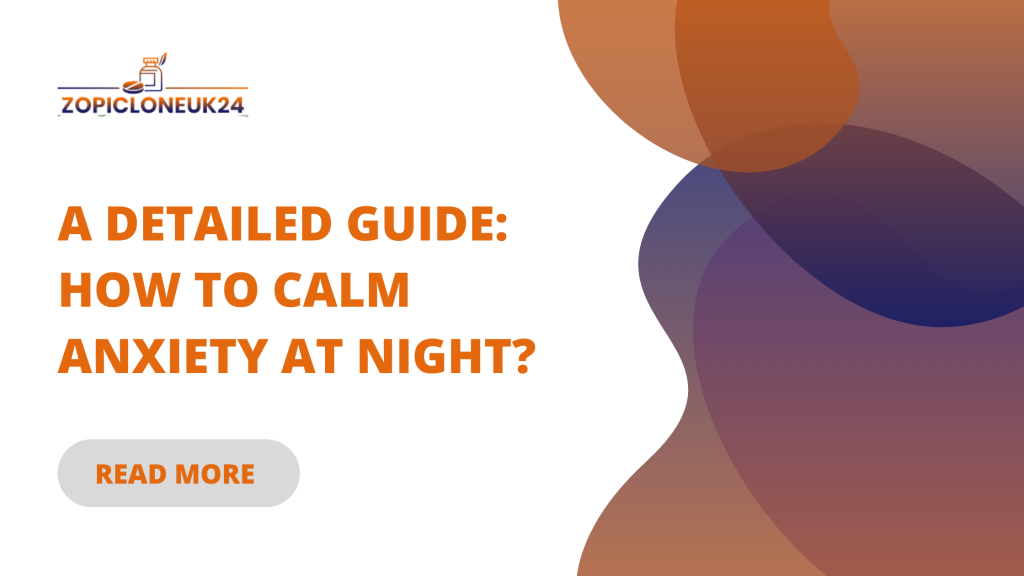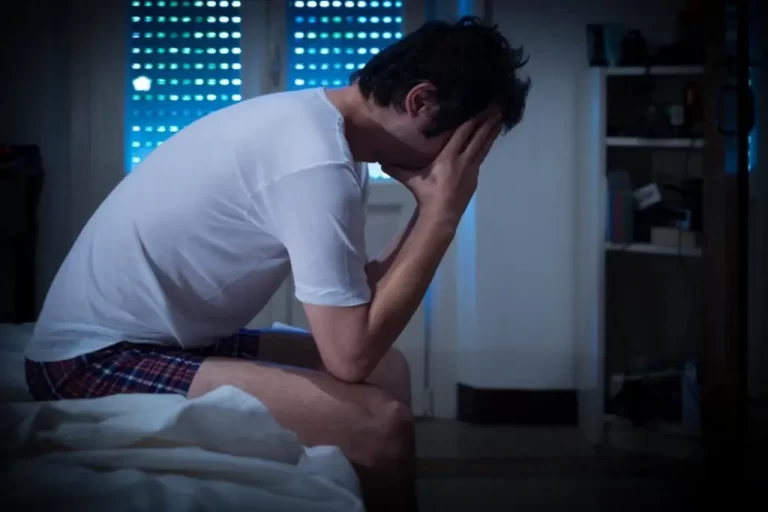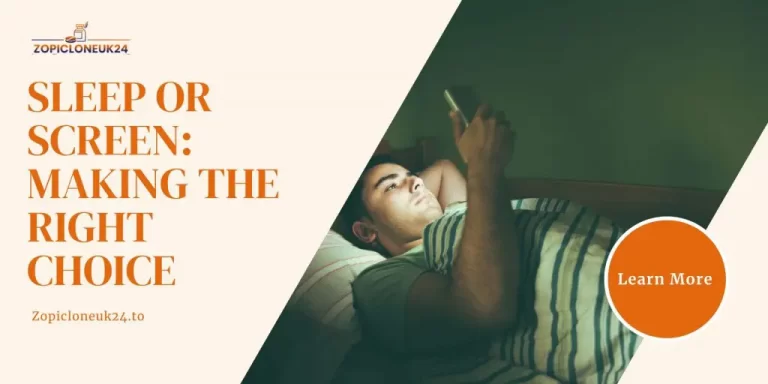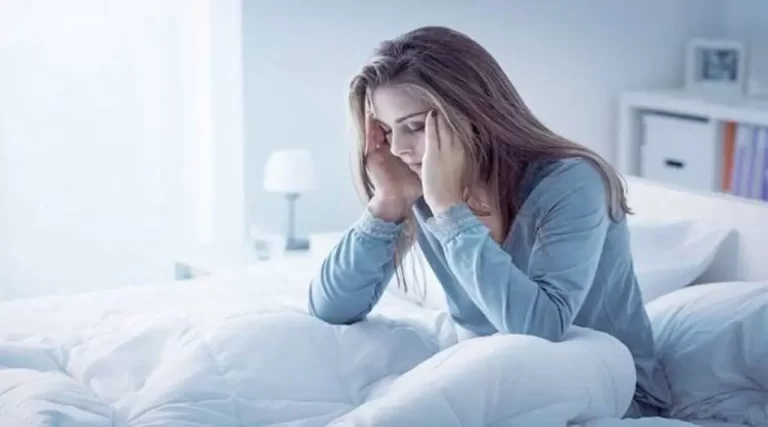A Detailed Guide: How to Calm Anxiety at Night?
Is it your bedtime and all you can worry about is when will you wake up, are you getting enough sleep, or what if you don’t wake up fresh? Our mind races through so many complications that we end up being wide awake. While we toss and turn the whole night, the sleep anxiety starts to trigger.
Insomnia is one common phenomenon experienced by almost every adult. But do you know what sleep anxiety is?
Let us get into the basic concept of sleep anxiety.
What is Sleep Anxiety?
Quite ironically, sleep anxiety means being worried about going to sleep. Recent research claims that 50% of sleep-deprived people blame their anxiety for disrupting their sleeping schedule. Someone facing sleep anxiety cannot tell if they are anxious because they can’t sleep or can’t sleep because they are anxious.
The sleep anxiety phenomenon can be defined as a type of performance anxiety. It involves a cycle of anxious thoughts that race through our minds during and before going to bed. The effects of sleep anxiety are uneasiness, nervousness, and worry.
During the day, hundreds of tasks occupy your rational functions; keeping your brain at ease is difficult.
Sleep anxiety leads to a recurring cycle of poor sleep and stress. According to recent studies, sleep and anxiety are closely connected. Anxiety can hamper the peaceful sleep schedule, and a distorted sleep schedule can trigger anxiety. So, while you have trouble sleeping at night, your sleep anxiety can kick in and worsen it.
Many healthcare officials claim that sleep deprivation can ramp up your brain and activate the symptoms of sleep anxiety.
Since sleep anxiety is confusing to figure out and understand, you should clearly know the symptoms of nighttime anxiety.
What are the Symptoms Of Nighttime Anxiety?
Sleep anxiety has various symptoms but differs for every person. For some people, sleep anxiety means running thoughts in the mind; for others, it is quite serious.
While nighttime anxiety is individual to everyone, some common symptoms are faced by most patients.
- Trouble concentrating
- Nightmares and night terrors
- Hypnic jerks
- Restlessness and nervousness
- Trouble falling and staying asleep
- Gastrointestinal problems
- Panic attacks
The kind of lifestyle we have adopted these days attracts some negative habits too. If not sleep anxiety, then we disrupt our sleep schedule due to busy schedules. This can cause some serious side effects like increased heart rate, sweating, the feeling of detachment and dizziness. Nighttime anxiety can be hard to cope with.
The Impact Of Sleep Anxiety
One of the major causes of anxiety is inadequate sleep. Today, most people, especially adults, have insomnia. While insomnia has its own set of negative impacts, the anxiety followed by sleep deprivation also brings along some side effects. When anxiety and inadequate sleep combine, it goes beyond just the tiredness of an all-nighter. As far as we understand the connection between sleep and anxiety, it is a vicious cycle that affects your sleep schedule.
Some of the most common impacts of sleep anxiety are-
- Impacts your mood in a negative way
- Affects your attention and learning
- Increases chances of depression
- Poor performance at work and school
- Reduces rational reaction times
We know how lack of sleep and depression are closely tied. Sleep disorders like insomnia can increase the chances of depression by four times. Not just depression, sleep inadequacies can also cause other health problems like heart diseases, high blood pressure, obesity, stroke and diabetes.
No matter how stuck we are in the current health scenario, there are always some ways outs.
Read through to know how sleep anxiety can be overcome.
How To Overcome Bedtime Anxiety?
Contemplating the severe effects of bedtime anxiety, we should look for some way-outs. Since sleep anxiety is every day, following some strategies can relax your body and mind.
- Practice Good Sleep Hygiene: Anxiety and sleep are interconnected. Many doctors have claimed that a good night’s sleep can relieve anxiety in people. Maintaining a coordinated sleep schedule with your daily tasks leaves no topic to feel anxious about. Anxiety is usually triggered by worry about the next day’s tasks. However, nighttime anxiety is triggered by the thought of incomplete sleeping hours. And, since you are anxious all the time, you feel hard to sleep.
- Start Meditation: Meditation is one of the most effective keys to calming the mind. Recent studies show that diaphragmatic and systematic breathing techniques can relax your body and reduce sleep anxiety. Start practising meditation before bedtime. A few minutes of silent breathing, sitting quietly and focusing on your breathing patterns can relieve anxiety in the best way. Usually, the nighttime anxiety is racing thoughts in my mind. With the help of meditation, you can have good control over your thoughts.
- Give Time To Your Body: Start exercising when you cannot cope with anxiety. Exercising or indulging in any physical activity can help you release your inner thoughts in the form of aggression. Research says that pre-bedtime anxiety can be treated by working out as it reduces the stress hormone reduction. People who are involved in regular workout sessions have been sleeping better. Especially people facing insomnia are known to feel good after a good walk or workout session.
- Spare Time For Winding Down: Don’t just go to bed after you have had dinner or come from your gym. If you suffer from sleep anxiety, you must prepare a proper nighttime schedule where you wind down systematically and then come in the mood for sleep. Winding down includes dimming the lights, taking a warm bath, or even listening to calm music. All these activities can prepare you for your bedtime. Some doctors suggest not using computers or mobile phones just before you sleep.
- Don’t Get Involved In Any Stressful Act Before Bed: If you want to start a good sleep schedule and get help with nighttime anxiety, you should stay out of stressful activities. People who are easy to stress hits are most likely to attract sleep anxiety. They worry a lot and then lose sleep over certain matters. So, when it comes to relieving sleep anxiety, you should surround yourself with some calming activities. Invest your last one hour before bedtime in reading or writing. This calms your mind and helps you sleep peacefully.
- Start Writing Your Worries: Almost every doctor suggests you write down your worries and even minor thoughts. Anxiety can affect anyone anytime, and getting out of it is highly important. So, if you are stressed about certain things in your life that affect your sleep at night, maybe you need to vent your thoughts. This prevents your thoughts from swirling around in your head while in bed. You can let go of those worries by penning them down. Also, some people feel anxious about the next day’s tasks. When you write it down, you can simply note down your schedule for the next day. This way, you can focus on your sleep patterns instead of worrying about them.
- Avoid Lying In Bed Awake: If you are lying in your bed and are awake for more than 20 minutes, maybe you need a do-over. Get up and try to do something that takes your mind off the inability to sleep. Many doctors suggest getting involved in sleep-inducing activities like drinking calming tea or reading a book. These activities, known as stimulus control, can reduce the time you need to fall asleep. If you are trying to reset your mind to fall asleep again, make sure you try the stimulus control away from your bedroom environment.
- Limit Screen Time: We often hear this but do not implement it in our daily lives. Limiting screen time before bed helps you sleep well and is quite sound. Laptops and phones emit blue light that somehow tricks the brain into thinking that the sun is up. This suppresses melatonin. To avoid this issue affecting you in any way, you need to part ways with your computer and phone screen. Even if you wish to use your phone, consider using a blue light filter to reduce the glare.
- Set Your Environment: If you suffer from sleep anxiety, you must focus on setting an environment that feels good and calming. Setting your air conditioner at the right temperature, keeping a diffuser, dimming the light, and lowering the sounds can create an environment suitable for sleeping. Sometimes, how much you want to sleep doesn’t matter. Once the environment is favourable for sleeping, you go into that mode and mood that helps you sleep instantly.
- Get Medications: We might not be aware of the medications available to treat sleep anxiety and insomnia, but with healthcare growing on another level, we can surely expect it to happen. Zopiclone is known to be an effective medication for treating insomnia. If you feel your sleep anxiety is triggered because of lack of sleep, it’s time you consult your doctor. They will tell you which medication suits you the best. Some say sleeping medications can be addictive; perhaps, some medications like zopiclone are not addictive. Also, this medication doesn’t list any major side effects.
What Causes Sleep Anxiety?
Sleep anxiety can be triggered for multiple reasons. Although we cannot control the anxiety from kicking in, we can surely avoid the triggering.
Here are some habits or unconscious acts that can stimulate anxious thoughts.
- Too Much Focus On The Day: Knott claims that “our body perceives work stress, social contact and relationship issues as dangerous. It prepares us to fight or flee.” It relaxes our minds when we are too focused on our worries. Our mind runs through the stressful activities that are about to happen, which triggers sleep anxiety and makes it hard to fall asleep.
- Fear: This is one of the most common causes of sleep anxiety. Most people feel scared, sad, and worried at night. The fear and the feeling of sadness make it hard for the mind to stay calm. Our body gets an adrenaline rush that fuels the anxious thought and ruins the relaxation process.
- Rapid Thought Patterns: People who have anxiety experience a series of rapid thought patterns. The quick-moving memories or thoughts are hard to calm down. Until those thoughts are stopped, you cannot sleep peacefully. These thought patterns don’t just last a day but stay throughout the week.
- Distorted Sleep Cycle: Insomnia is quite common in people today. Since sleep and anxiety walk hand in hand, you can expect anxiety to kick in, especially if your sleep cycle is poor. If you have had anxiety for a long time, you would also be dealing with a bad sleep schedule. The longevity of a poor sleep cycle gets you to the stage of insomnia and stress.
Now, when we talk about anxiety in general, there are different types. Claiming every type of anxiety as sleep anxiety or a generalized anxiety disorder can be wrong. A decade back, people were unaware of the seriousness of anxiety problems. As people became more open to mental health, they started getting a better idea of its symptoms, triggers, and causes.
Here are the four types of anxiety disorders that need your attention.
- Generalized anxiety disorder
- Social anxiety disorder
- Obsessive-compulsive disorder
- Post-traumatic stress disorder
Research shows that sleep disorders are common in all these anxiety types. People experience insomnia if they have anxiety. To understand these types, let’s have a little overview.
Generalized anxiety disorder means worrying about general and everyday events.
Social anxiety disorder is the anticipation or thought of social situations that affect your sleep at night.
Obsessive-compulsive disorder is the intrusive thought and fears that can keep you awake at night.
Post-traumatic stress disorder is the constant re-experiencing of events that have been traumatic in the past.
Understanding anxiety disorders in-depth gives you and your doctor a fair idea of how to treat them. Make sure you contact your doctor the moment you start feeling anxious.















